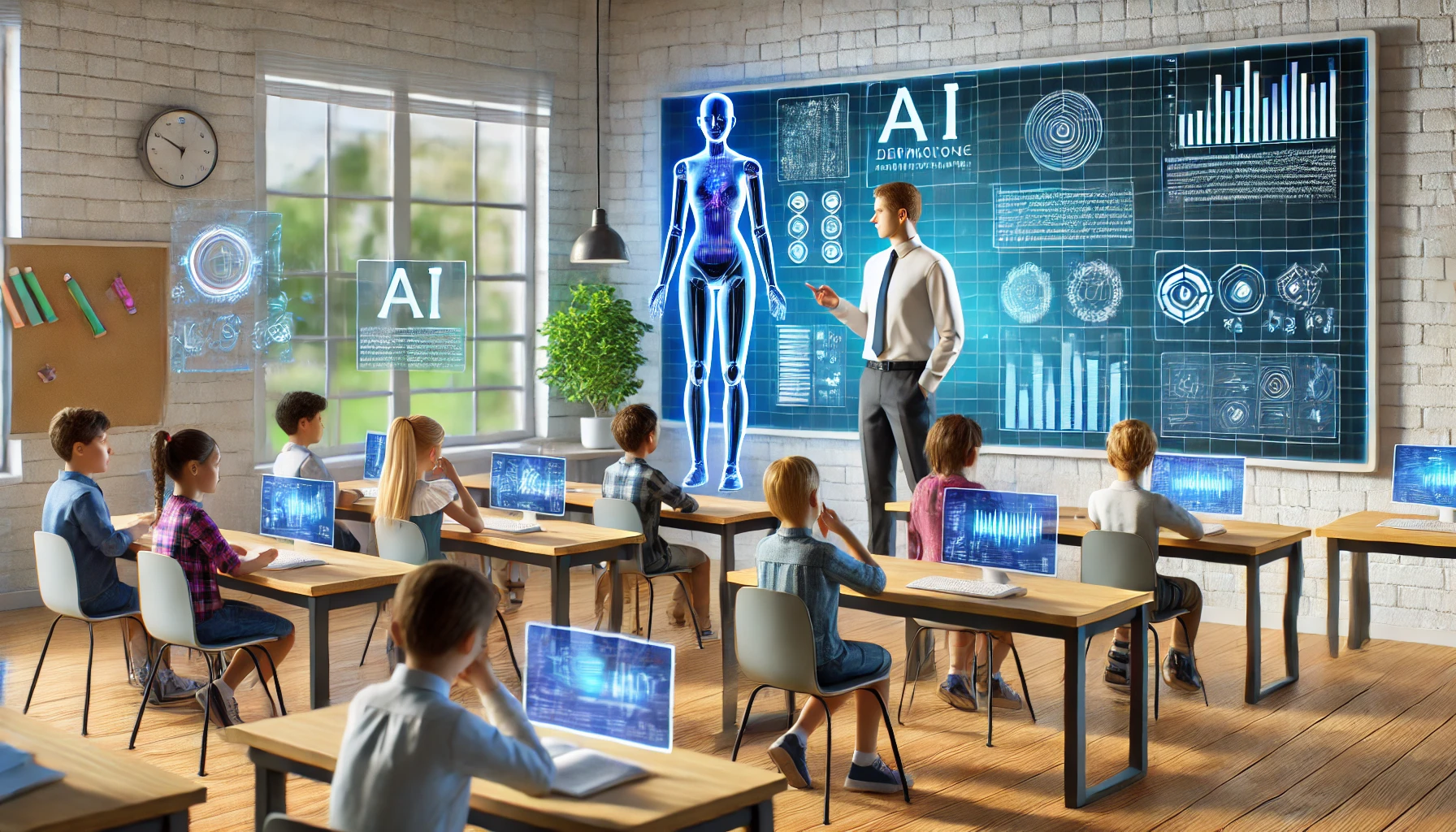Artificial Intelligence (AI) is transforming the education sector, reshaping how students learn and how teachers instruct. From personalized learning platforms to AI-powered grading systems, technology is playing an increasing role in classrooms. But does this mean that machines will eventually replace teachers? Or will AI serve as an assistant rather than a replacement?
In this article, we will explore how AI is changing education, its benefits and challenges, and the role of human teachers in an AI-driven world.
How AI Is Changing Education
1. Personalized Learning with AI
AI-powered platforms can adapt lessons to each student’s learning pace and style. This ensures that students who need more time on a topic get additional practice, while advanced learners can move ahead.
- Adaptive learning systems adjust difficulty levels based on student performance.
- AI tutors provide one-on-one assistance, offering explanations and answering questions.
- Personalized recommendations help students focus on their weak areas.
2. Automated Grading and Feedback
AI can significantly reduce the workload for teachers by automating grading processes.
- AI tools assess multiple-choice tests, essays, and even programming assignments.
- Instant feedback helps students understand mistakes and improve faster.
- Teachers can focus on more complex evaluations, such as critical thinking and creativity.
3. Virtual Classrooms and AI-Powered Teaching Assistants
With the rise of online learning, AI is playing a key role in virtual education.
- AI chatbots answer students’ frequently asked questions.
- AI teaching assistants provide additional explanations and resources.
- Smart scheduling tools help teachers and students manage their time effectively.
4. AI in Special Education
AI has made education more accessible for students with disabilities.
- Speech recognition helps students with speech impairments communicate better.
- AI-powered captioning and translation assist students with hearing impairments.
- Personalized learning plans accommodate students with autism, dyslexia, and other learning challenges.
5. Predictive Analytics for Student Performance
AI can analyze data to predict student performance and potential challenges.
- Schools use AI to identify students at risk of falling behind.
- AI-based insights help teachers intervene before students fail.
- AI suggests study strategies based on students’ strengths and weaknesses.
The Benefits of AI in Education
1. More Efficient Learning
AI-driven learning tools provide instant support, enabling students to learn more efficiently.
2. Equal Access to Quality Education
AI-powered online platforms allow students worldwide to access high-quality educational resources.
3. Reduced Teacher Workload
Automation of administrative tasks frees up teachers to focus on instruction and mentorship.
4. Data-Driven Teaching Strategies
AI provides insights into student progress, helping teachers refine their teaching methods.
5. Improved Student Engagement
Interactive AI tools make learning more engaging, especially for younger students.
Challenges and Concerns of AI in Education
1. The Risk of Over-Reliance on AI
While AI can enhance education, excessive reliance on technology may reduce critical thinking and problem-solving skills.
2. Lack of Human Connection
Education is not just about knowledge transfer; emotional and social interactions play a crucial role. AI cannot replace the empathy, encouragement, and inspiration that human teachers provide.
3. Data Privacy and Security
AI relies on student data, raising concerns about privacy and cybersecurity. Schools must ensure student information is protected.
4. Bias in AI Algorithms
If AI systems are trained on biased data, they may reinforce inequalities in education. Developers must ensure fairness in AI-driven learning tools.
5. Accessibility and Affordability
Not all schools and students have access to advanced AI technology. The digital divide could widen educational inequalities.
Teachers vs. Machines: Will AI Replace Educators?
Despite AI’s capabilities, human teachers remain essential in education. Here’s why:
- Emotional Intelligence: AI lacks the ability to understand emotions and provide emotional support to students.
- Critical Thinking and Creativity: AI can assist with knowledge transfer but cannot teach creativity, ethical reasoning, or leadership.
- Motivation and Inspiration: Teachers inspire students through personal stories, mentorship, and encouragement—something AI cannot replicate.
- Adaptability: While AI is based on patterns, human teachers can adapt their teaching styles based on real-time classroom dynamics.
The Future: AI and Teachers Working Together
Rather than replacing teachers, AI is best used as a tool to support educators. The future of education will likely involve a balance between technology and human instruction.
- AI will handle repetitive tasks, allowing teachers to focus on deeper learning experiences.
- Human-AI collaboration will create more personalized and effective learning environments.
- Schools will need to integrate AI responsibly, ensuring it enhances rather than replaces human connections.
Final Thoughts: A Smarter, More Inclusive Education System
AI is revolutionizing education, making learning more accessible, personalized, and efficient. However, human teachers remain irreplaceable, providing the emotional and social intelligence that AI cannot replicate.
The key is to embrace AI as a tool for improvement while preserving the essential human aspects of education. By combining technology with skilled educators, we can build a smarter, more inclusive education system for the future.
